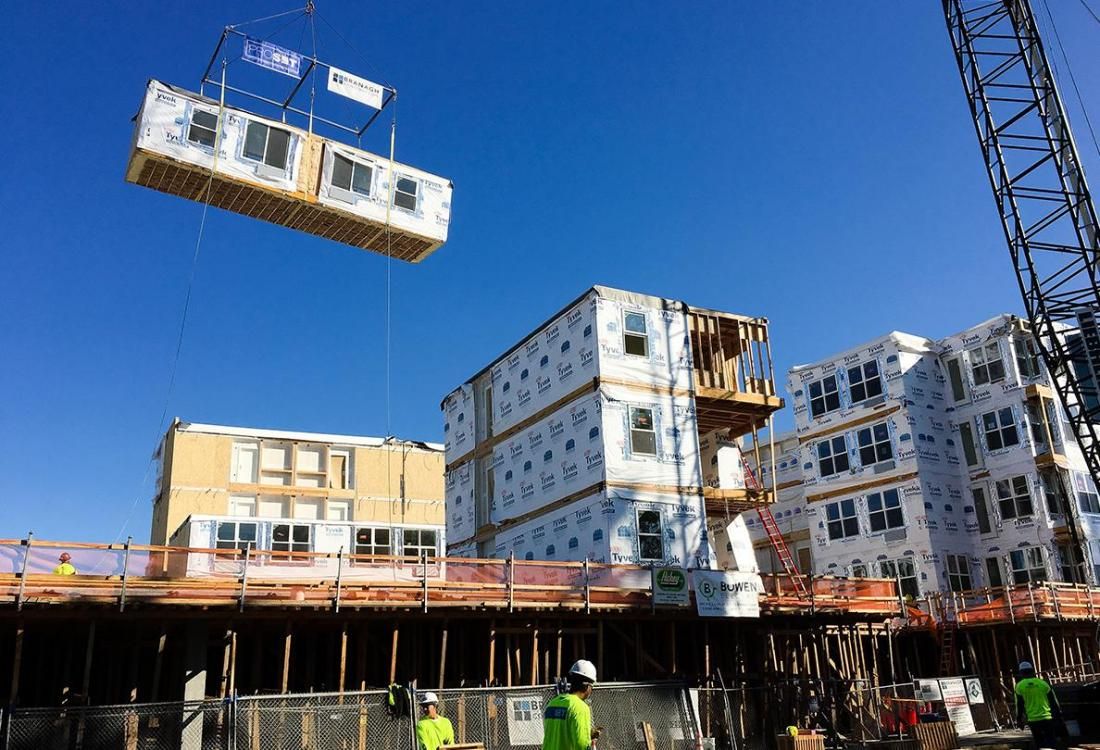Modular home manufacturers are at a crossroads, pondering a pivotal question: “Should they continue to carve out a niche in custom modular homes, or pivot towards the broader horizons of multi-module projects?”
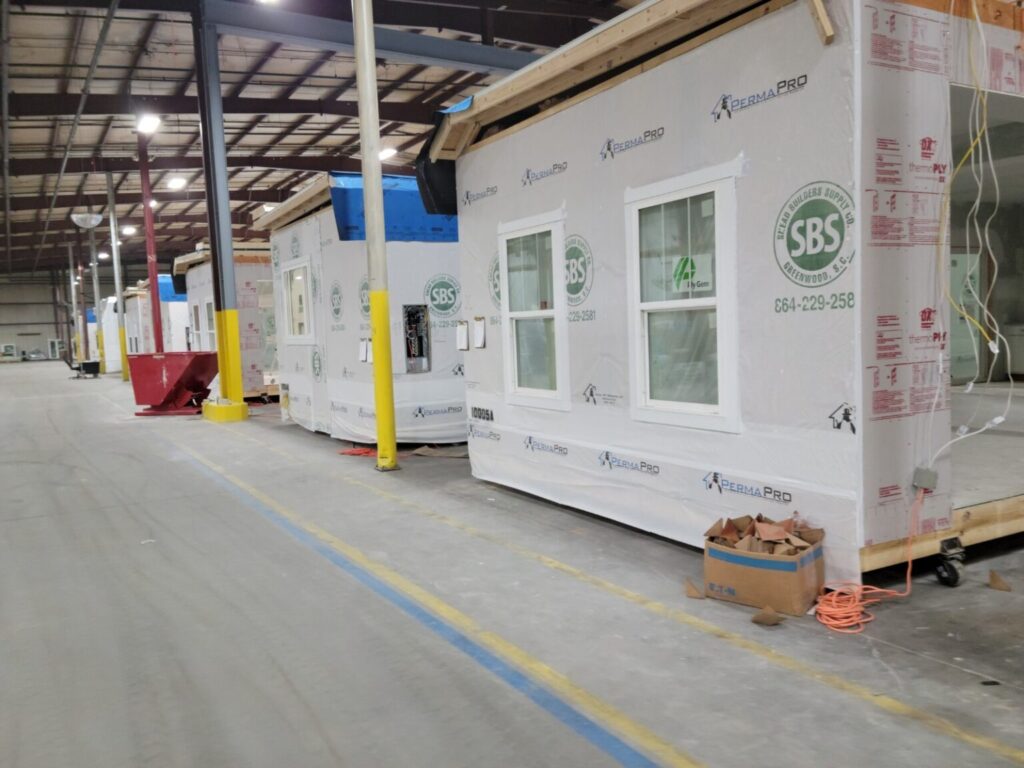
photo – Impresa Modular
This question is more than a mere operational choice—it’s a strategic decision that could define the future sustainability and growth trajectory of their businesses. As the market dynamics shift and consumer preferences evolve, understanding the nuanced considerations of both approaches is crucial for manufacturers aiming to thrive in this competitive industry.
The Custom Modular Home Advantage
Custom modular homes have long been the bastion of creativity and personalization within the housing sector. They serve a specific clientele that values uniqueness and tailored living spaces over cookie-cutter designs. This market segment is willing to invest in the premium that customization demands, offering manufacturers potentially higher profit margins per unit.
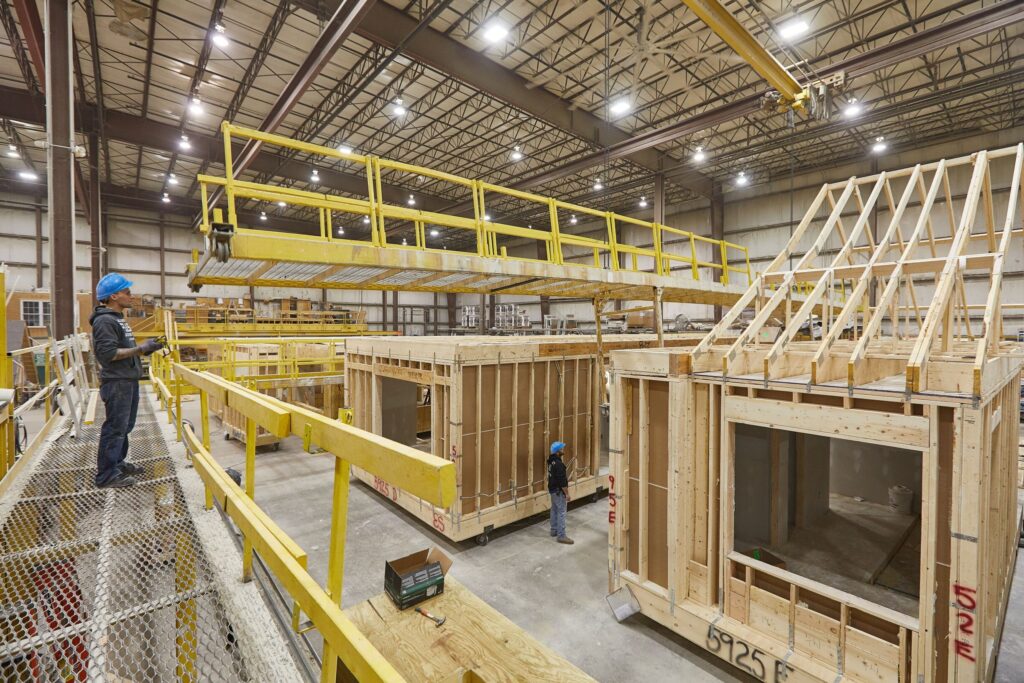
photo – Signature Homes
The allure of custom modular homes lies in their ability to meet specific homeowner desires, from layout configurations to material selections, ensuring that no two homes are exactly alike.
However, this customization comes with its set of challenges. The production of custom modular homes is inherently complex and resource-intensive. Each project requires a significant amount of planning, design work, and material sourcing, which can extend production timelines and inflate costs.
The bespoke nature of these homes also means that manufacturers might face limitations in scaling their operations, as each unit demands meticulous attention to detail and craftsmanship.
The Case for Multi-Module Projects
On the flip side, multi-module projects offer a pathway to scalability and efficiency. By standardizing designs and components, manufacturers can achieve economies of scale that significantly reduce the cost per unit. This standardization streamlines the production process, enabling faster build times and more consistent quality control. Moreover, multi-module projects open up a broader market reach, encompassing everything from residential developments to commercial applications, thereby increasing the potential sales volume.
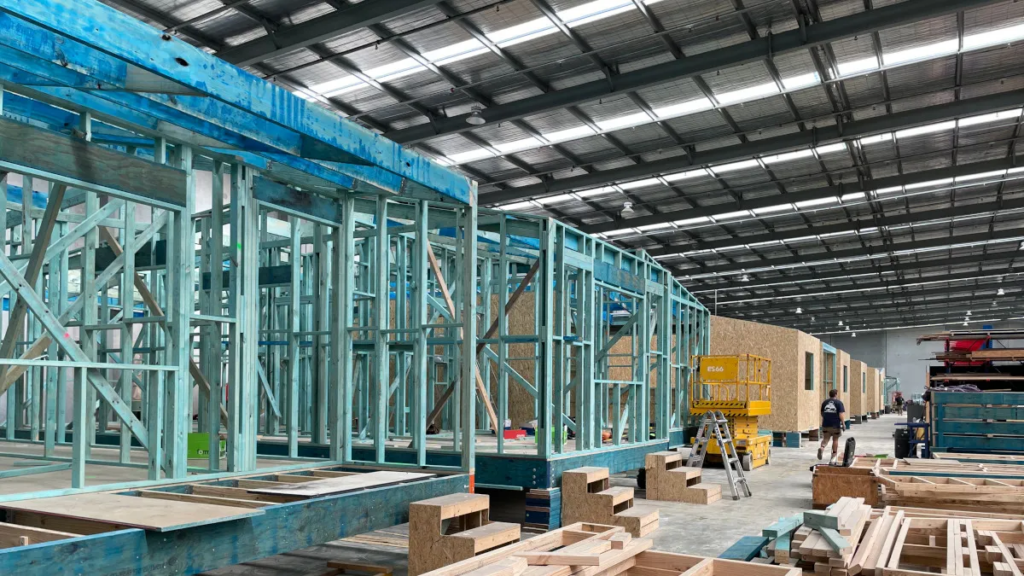
.
The predictability of demand for standardized products also allows manufacturers to optimize their inventory management and production scheduling, leading to more stable and predictable revenue streams. In an industry where cash flow management is key to sustainability, the ability to forecast demand and streamline operations can be a significant advantage.
Strategic Considerations for Sustainability
The decision to focus on custom modular homes or to transition towards multi-module projects is not to be taken lightly. It requires a deep dive into market research to understand the prevailing trends and consumer preferences in the target market. Are homeowners looking for unique, personalized designs, or is there a growing demand for affordable, scalable housing and commercial solutions?
Manufacturers must also conduct a thorough capacity analysis to evaluate whether their current operations are optimized for custom projects or if they have the potential to scale up for higher-volume production. This analysis extends to financial considerations, comparing the revenue potentials, cost implications, and profit margins of both strategies.
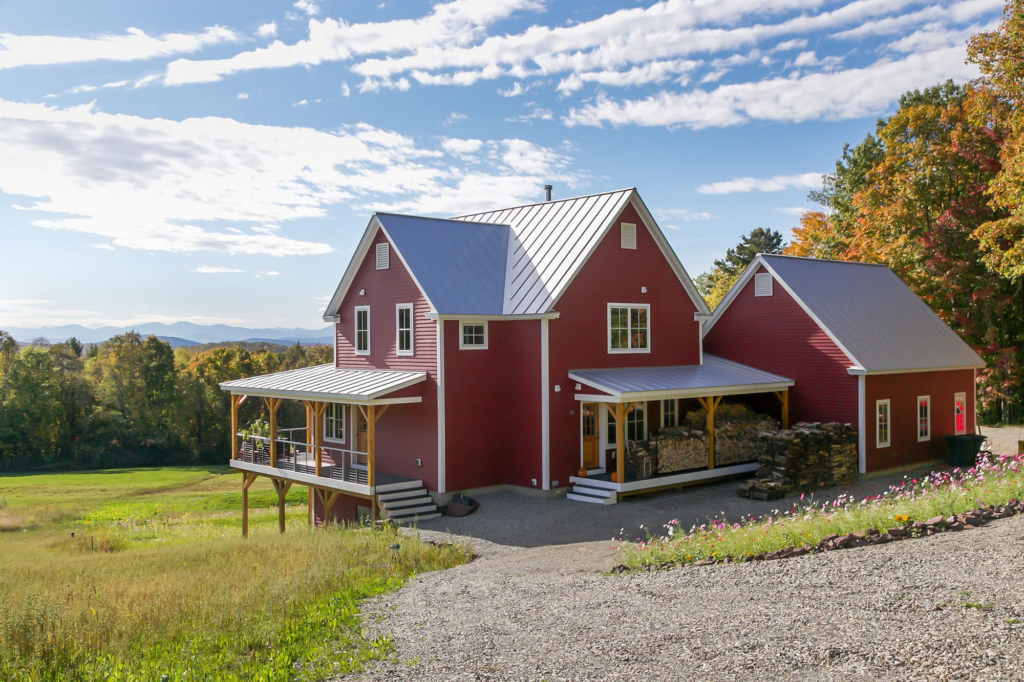
photo – Huntington Homes
Moreover, flexibility and adaptability are key. Some manufacturers might find a hybrid model to be the most viable, offering both custom modular homes for those seeking personalization and multi-module projects for clients prioritizing affordability and scalability. This balanced approach can help mitigate risks associated with market demand fluctuations and ensure a diversified product portfolio.
Charting the Path Forward
Ultimately, the decision on whether to shift focus towards multi-module projects should be grounded in a comprehensive analysis of the manufacturer’s strengths, market demands, and long-term financial objectives.
For some, the niche market of custom modular homes presents a unique value proposition that aligns with their brand and capabilities. For others, the scalability and efficiency of multi-module projects may offer a more sustainable growth pathway.
As the modular home industry continues to evolve, manufacturers must remain agile, constantly reassessing their strategies to align with changing market dynamics and consumer preferences. Whether through custom designs or standardized projects, the goal remains the same: to deliver quality housing solutions that meet the diverse needs of today’s homeowners.
.
CLICK HERE TO READ THE FEBRUARY ISSUE
.
Gary Fleisher is a renowned blogger and commentator on construction and housing trends, known for his insightful analysis of the industry.





